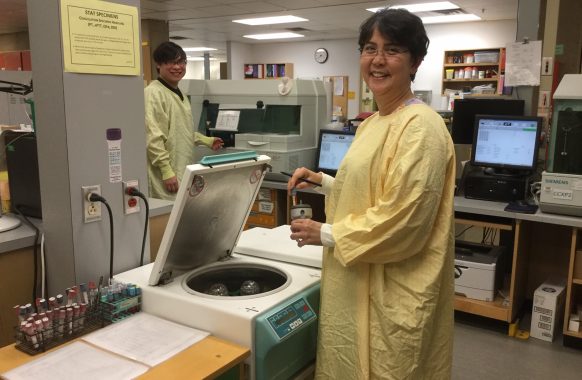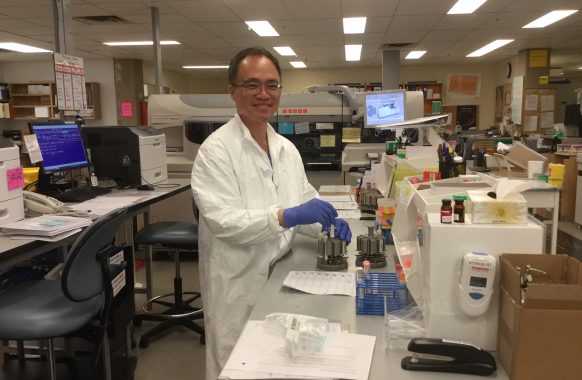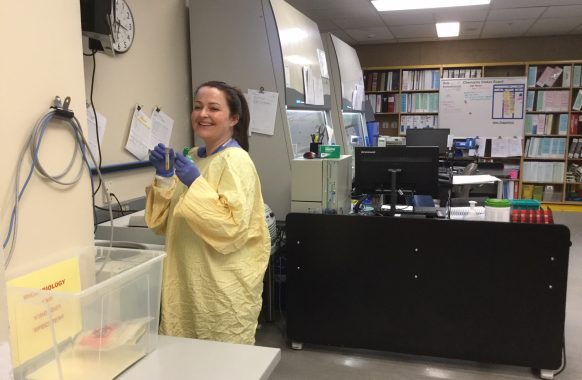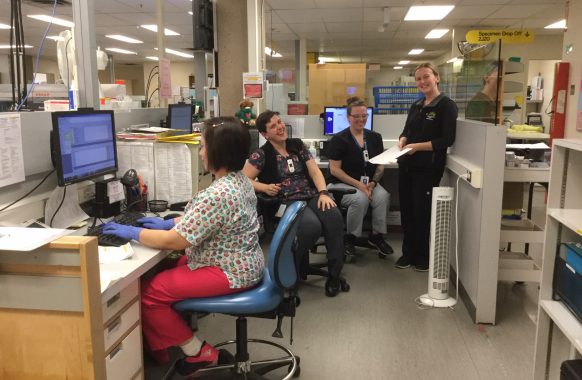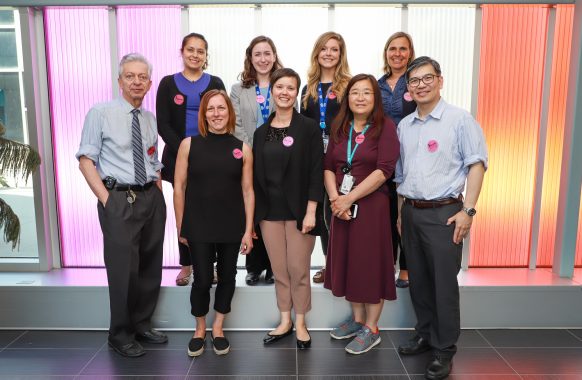
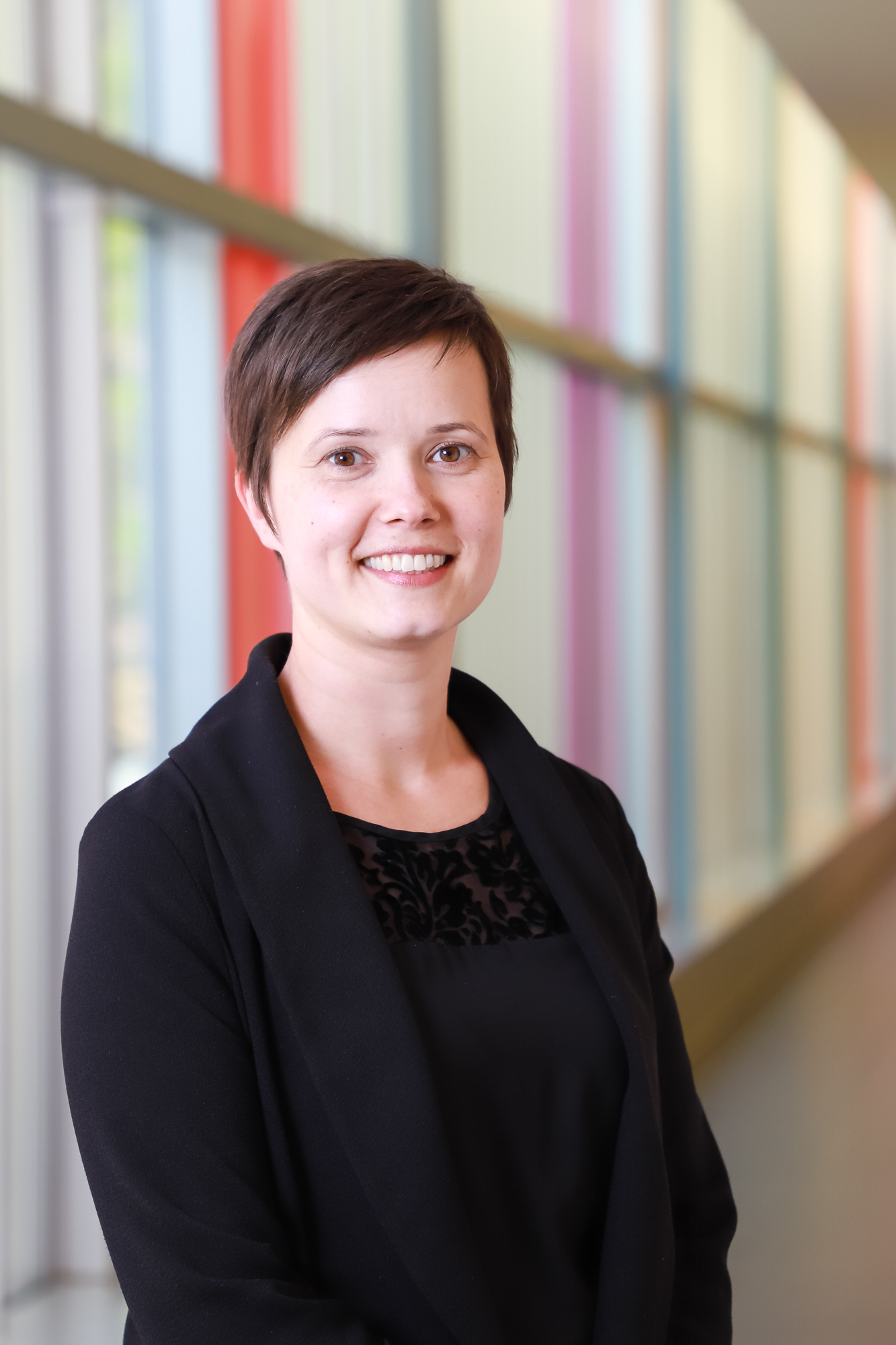
In her day-to-day work, she is also involved with quality oversight in the lab to help ensure that they are producing reliable, accurate, and timely results, as well as providing consultation for healthcare providers and physicians. This might include assisting with test result interpretation by reviewing records, producing interpretive reports, evaluating test performance, or helping to find, select, or order and utilize appropriate tests. She is also involved with decisions around implementing new types of tests or developing tests when a need is identified.
In addition to her role in the lab, Dr. Barakauskas is helping to establish reference intervals for pregnant women around the time of labour through the Pregnancy Reference Intervals for Safe Medicine (PRISM) study. For the average person, lab results are interpreted by comparing against a set of reference intervals. These are a range of data compiled from ‘healthy individuals’ (commonly adults), which can help determine whether or not a patient’s test results are within a normal range, or if there might be a need for further investigation and testing.
However, for patients who belong to a population outside of the ‘average, healthy adult’, it becomes difficult to determine when there is a cause for concern. Dr. Barakauskas offers the example of pediatric medicine, where babies and kids are developing so quickly that it becomes harder to pinpoint what ‘normal’ should look like in test results.
Similarly, pregnancy is a time period during which physiology changes and test results might appear abnormal when compared with non-pregnant adults. Currently, there is little available information about reference intervals for this population, and less data directly applicable to our diverse population of women in British Columbia. Access to representative reference intervals is important because they help reduce the risk of under or over diagnoses and support appropriate patient care.
Creating reference intervals is a daunting task, Dr. Barakauskas explains, as it requires a lot of blood sampling and a lot of data. Further, she emphasizes the added difficulty of collecting specimens from ‘healthy’ populations, who are less likely to require bloodwork as part of their routine care, and thus volunteers for research participation and blood collection are required.
As a result, her team is conducting this research both through a recruitment process, where they seek out ‘healthy’ pregnant women to collect blood from, and through retrospective data analysis, where existing data is sorted using mathematical methods. While the study’s primary goal is to produce reference intervals and improve test interpretation, it will also allow the team to compare these two research methods for future development of reference intervals for other populations.
Dr. Barakauskas and her team have finished recruitment for the initial PRISM study of women around the time of labour, throughout which they had great collaboration across lab staff, nurses, and healthcare providers. They are currently starting sample and data analysis. She would like to acknowledge the mothers who participated, along with all the MLAs, lab technologists, nurses, students, BCCH Biobank and others who invested their time and hard work in the PRISM study and is grateful for the mentorship of co-investigators Dr. Wee-Shian Chan, Head of the Department of Medicine at BC Women’s Hospital, and Dr. Benjamin Jung, Clinical Biochemist, currently at SickKids. Together with Dr. Kate Chipperfield, Hematopathologist in the department of Pathology and Laboratory Medicine, Dr. Chan and an expanded team of clinician and patient collaborators, they will work to begin recruitment for the next iteration of PRISM which will look at blood from healthy mothers postpartum, as well as blood from their infants.
To learn more about PRISM click here. To read more about Dr. Barakauskas, click here.
